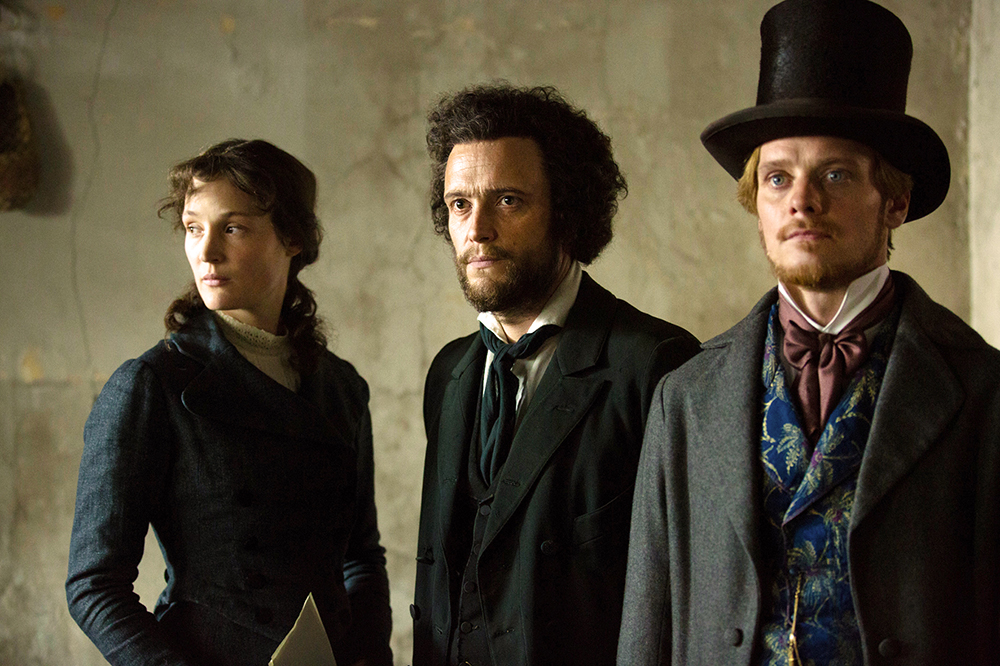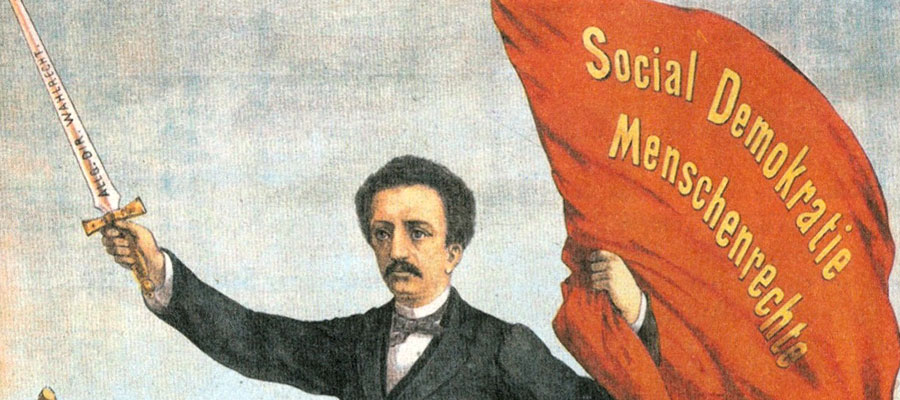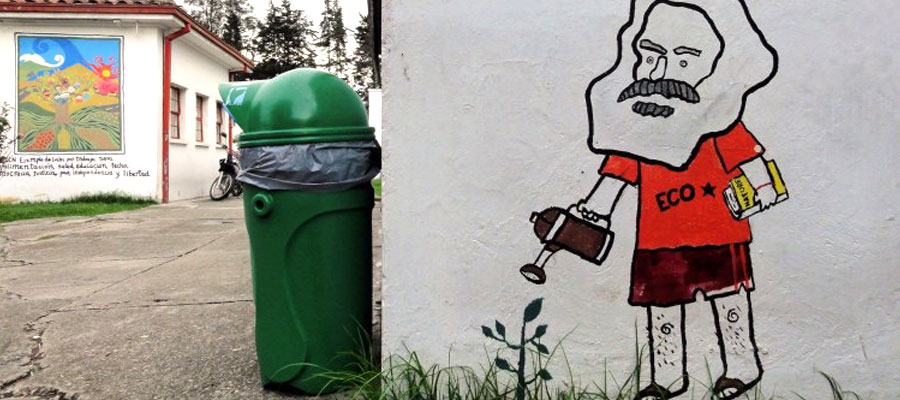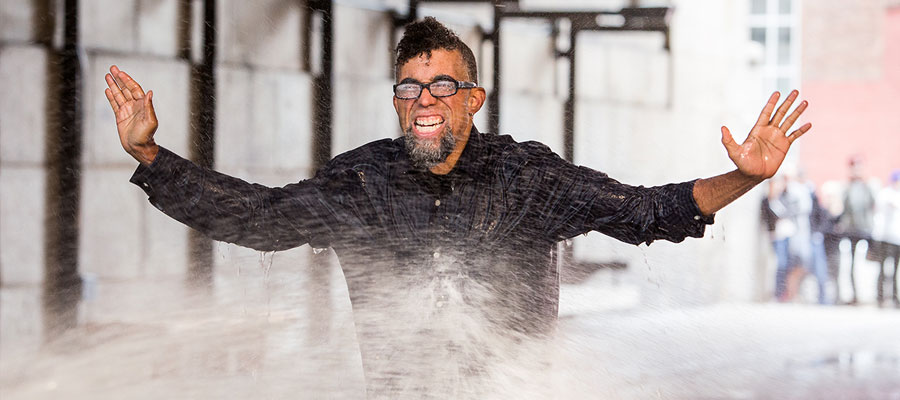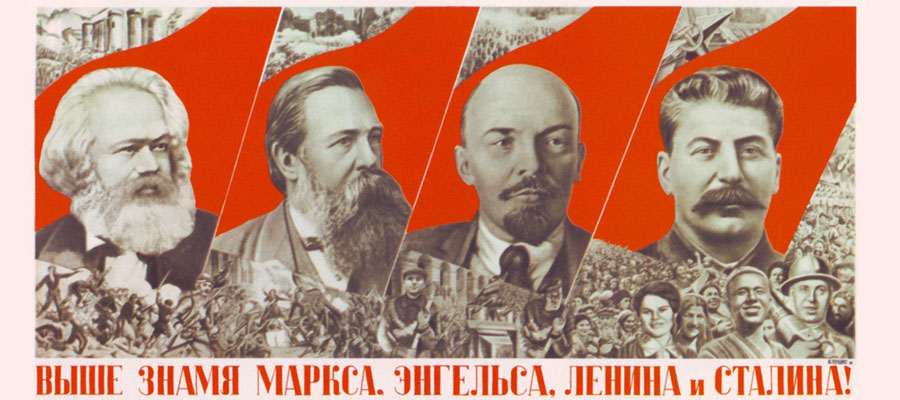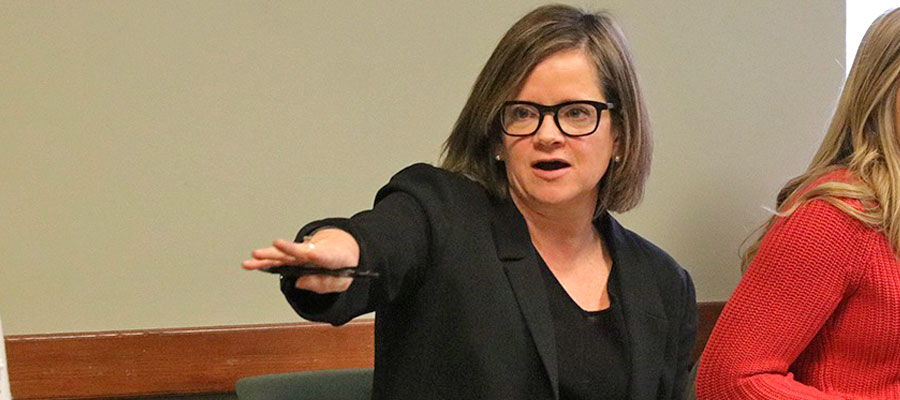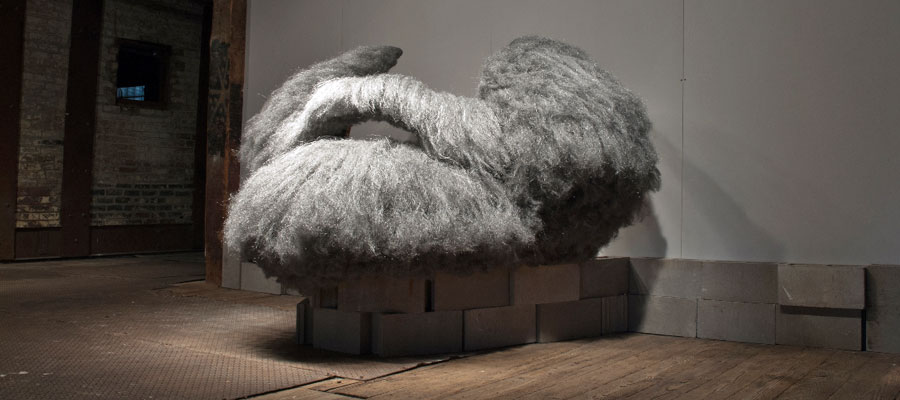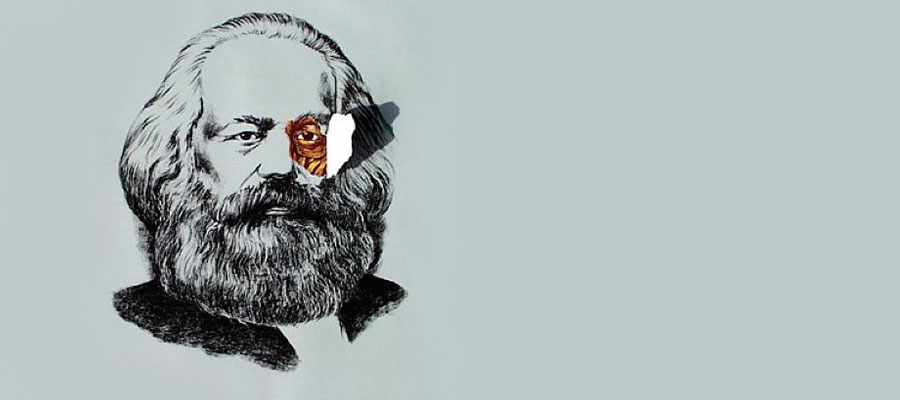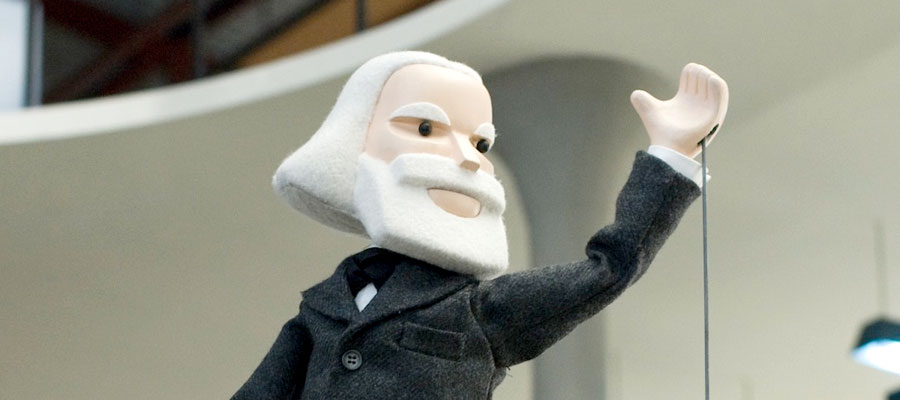Marx@200 Events
Karl Marx remains one of the most influential and controversial thinkers since the Enlightenment. On the occasion of his bicentennial, the Humanities Center at Carnegie Mellon University is offering a variety of perspectives on Marx’s ideas and impact. Through lectures, performances and an art exhibit, this programming will explore Marx’s critique of inequality and capitalism as well as his influence on political movements and political regimes, including totalitarianism.
Symposium on Marx and the Humanities on the CMU campus
Wednesday, May 30
Previous Events
Kathy M. Newman and David Shumway lecture: "Why Marx Now: 200 Years Later"
Thursday, September 14th
For the last 50 years Karl Marx has been a central figure for the humanities—we have used his work to explain history, to analyze art, to philosophize, and to interpret literature. According to one study Marx is the single most frequently cited scholar in the humanities.
As we look ahead to Marx’s 200th birthday, coming up in May of 2018, we see that Marx and his writings have become increasingly relevant since the global financial collapse of 2008. Marx's book sales are up, and so are articles and events—written by journalists and organized by scholars around the world. Come find out why we think Marx still matters, and learn about the exciting year of speakers, art exhibits and events we have planned.
6:00 pm
Catered reception in Conan room, Cohon University Center
Pittsburgh Premiere of Feature Film, The Young Karl Marx (2017)
Thursday, September 14th
6:45 pm to 8:30 pm
McConomy Auditorium, Cohon University Center
At the age of 26, Karl Marx embarks with his wife Jenny on the road to exile. In Paris in 1844 they meet young Friedrich Engels, son of a factory owner, who’s studied the sordid beginnings of the English proletariat. The three together, Karl, Jenny and Friedrich, between censorship and police raids, riots and political upheavals, preside over the birth of the labor movement, which until then had been mostly makeshift and unorganized. This will grow into the most complete theoretical and political transformation of the world since the Renaissance – driven, against all expectations, by this brilliant, insolent and sharp-witted young trio.
The film’s director, Raoul Peck, the Haitian director who also made I AM NOT YOUR NEGRO, explains why he wanted to tell Marx’s story: “A few years back, while the world was going through yet another financial crisis, I felt the need to go back to the basics: The analysis of the violent capitalist society we are still embedded in, through these three young Europeans of wealthy families (Karl, Friedrich and Jenny) who decided to change this utterly unequal world. And they eventually did; though not the way they imagined it.”
Panel Discussion: “Robotics, Pittsburgh and the End of Work”
Thursday, October 19th
4:30 PM
100 Porter Hall
What is the future of work? While some are sounding the alarm bell about the likelihood that American workers will soon be replaced by robots, at the Advanced Robotics for Manufacturing Institute, Suzy Teele argues that there will be manufacturing jobs in the future—they will just be different jobs. Join us for this spirited conversation about when, and whether, we should be worried about the end of work. Panelists include: Prof Eric Fuchs (Engineering and Public Policy, CMU), Professor Mark Kamlet (Economics and Public Policy, CMU), Justin Laing (founder of the non-profit consulting firm Hillombo, LLC, HNZ ‘10), Alex Pazuchanics (the Mayor’s office, HNZ ‘17), and Suzy Teele, Advanced Robotics for Manufacturing (ARM) Institute.
Kathi Weeks, “Love Your Work”
Thursday, October 19th
7:00 PM
Giant Eagle Auditorium, Baker Hall A51
Steve Jobs famously said that the “only way to do great work is to love what you do.” In this talk Duke Women’s Studies professor Kathi Weeks questions this kind of rhetoric, with a call for us to move beyond the language of work—and love—as we seek to craft a more Utopian future.
Jennifer Epps-Addison, “Building Communities of Power and Resistance in the Age of Trump”
Thursday, November 2nd
4:30 PM
Porter Hall 100
What can ordinary people do to gain power in the age of Trump? Find out at this talk by Jennifer Epps-Addison at the Center for Popular Democracy (CPD)—a high profile social justice organization focused on progressive policy-making and grassroots organizing. Come hear how you can organize to improve your community—and your campus—for the better.
Mary Gabriel and Jonathan Sperber, “Love, Capital, and Writing Marx’s History”
Wednesdsay, November 8th
7:00 PM
Adamson Wing, Baker Hall 136-A
In 2011 Mary Gabriel’s best selling biography of Marx, Love and Capital: Karl and Jenny Marx and the Birth of a Revolution, was nominated for a National Book Award as well as a Pulitzer Prize. With Love and Capital Gabriel gives us a more complete picture of Marx, his family, and the revolutionary movements which Marx and Jenny helped to shape. Jonathan Sperber’s best selling 2013 biography, Karl Marx: A Nineteenth Century Life, was described by The Guardian as a “brilliant embedding of Marx in his times.” Sperber used such texts as Marx’s high school essays as well as dozens of writings produced by Marx’s comrades and mentors to show to what extent Marx was a product of his moment. Ironically, perhaps, Sperber argues that Marx is not relevant to our own time. On the other hand, if Marx were not still relevant would Sperber have appeared on The Daily Show with Jon Stewart to discuss his book? Join us for this engaging event in which we will learn what it was like to research and write these biographies, and how two prize-winning historians can see the same person in such radically different ways.
Panel Discussion: Marx and the Global South
Tuesday, January 30th
4:30 PM
Steinberg Auditorium (A53), Baker Hall, CMU
Susan Andrade (U Pitt), Marian Aguiar (CMU), Paul Eiss (CMU), Shalini Puri (U Pitt)
How have scholars of the global south used, modified, or critiqued Marx’s ideas? Through this panel, we will learn about a Mexican village modeled on More’s Utopia, Marxism and memory studies in the Caribbean, Marx’s notions of Westernization and progress in India, and the Pitt cultural studies common seminar, “Uneven Development and Cultural Production.”
Sabine Hake: The 19th Century Socialist Messiah, Ferdinand Lassalle
Friday, February 2nd
3:30 pm
255B Baker Hall, CMU
Professor Hake presents Lassalle as the embodiment of an alternative nineteenth-century socialism—one associated with emotional socialism, utopianism, and populism. Hake argues, in essence, that Lassalle is the anti-Marx.
Jessie Ramey: Gender and Inequality in the Age of Neoliberalism
Tuesday, February 6th
4:30 pm
Steinberg Auditorium (A53), Baker Hall, CMU
As part of the Dietrich College Grand Challenge freshman seminar on inequality, Chatham professor and Women’s Institute director Jessie Ramey will explain how and why neoliberalism has increased inequality between the sexes—and what we can do about it.
Where in the World is Marx Today?
Thursday, February 15th
4:30 PM
Porter Hall 100, CMU
Mariana Achugar (Universidad de la República de Uruguay), Ben Barson (U Pitt), Gizelxanath (activist and performer), Jackie Smith (U Pitt), John Soluri (CMU)
Many political movements worldwide, past and present, have been influenced by Marx. In this panel, we’ll consider the global environmental movement, political film in Uruguay, the peasant food movement in Latin America, as well as other movements from Pittsburgh to contemporary Europe.
Dread Scott: Imagine a World Without America
Tuesday, February 27th
6:30 PM
Kresge Theater and Lecture Hall, College of Fine Arts, CMU
Dread Scott makes revolutionary art to propel history forward. His work has been included in recent exhibitions at MoMA PS1, the Walker art Center, the Brooklyn Museum and the Pori Art Museum in Finland as well as on view in America is Hard to See, the Whitney Museum’s inaugural exhibition in their new building. Scott will be featured in the Marx@200 art exhibit in the SPACE gallery in downtown Pittsburgh, opening April 6th.
Holly Lewis: The Politics of Everybody: Feminism, Queer Theory and Marxism at the Intersection
Thursday, March 22nd
4:30 PM
Porter Hall 100, CMU
Texas State University Philosophy Professor Holly Lewis will be speaking from her book, of the same title, in which she calls for a new, materialist queer theory. Lewis points us towards to a politics of liberation that is intersectional, transnational, and grounded in lived experience.
Panel Discussion: Marx and the Totalitarian Temptation
Thursday, March 29th
4:30 pm
The Swank Room, Baker Hall 255-B, CMU
Stephen Brockmann (CMU), Richard Purcell (CMU) and Andreea Ritivoi (CMU)
Marx was used by a number of 20th century communist regimes as an intellectual guide for both revolution and state building. Is there something in Marx’s work that tempted these regimes to become totalitarian? During this panel, we will consider these questions in regards to Romania, East Germany, the Soviet Union and the United States.
Jodi Dean: Theory of the Comrade
Thursday, April 5th
7:00 pm
Steinberg Auditorium (A53), Baker Hall, CMU
Jodi Dean is professor of political science at Hobart and William Smith Colleges and Erasmus Professor of the Humanities in the Faculty of Philosophy at Erasmus University. Dean argues that the term comrade signals the egalitarian future of a society reorganized according to the free association, common benefit, and collective decisions of the producers.
Opening of Art Exhibit, Marx@200
Friday, April 6th
SPACE gallery, 812 Liberty Avenue, downtown Pittsburgh
Marx@200 is a spirited, thoughtful, and international exhibit that seeks to address some of the catastrophic economic issues those of us in Pittsburgh—and across the globe—are facing. Some of the artists in the exhibit engage directly with Marx, while others confront capitalism and still others dream of revolution. Marx@200 is sponsored by the Humanities Center at CMU, SPACE, the Pittsburgh Cultural Trust, the Pittsburgh Foundation, and curated by CMU faculty Kathy M. Newman and Susanne Slavick.
Izabel Galliera
Socially Engaged Art After Socialism:
Art and Civil Society in Post-Communist Europe
Thursday, April 12th
4:00 pm
Room 202 Frick Fine Arts Building on the Pitt campus, 650 Schenley Drive
Galliera is assistant professor of art history at McDaniel College and a recent graduate of Pitt’s Art History program. Galliera will be talking about her book, Socially Engaged Art After Socialism, in which she examines artists who have reclaimed public life from both communist regimes and neoliberalism, and who have harnessed the politically subversive potential of social relations based on trust, reciprocity and solidarity. Her focus is on artists in Bulgaria, Hungary and Romania.
Claire Fontaine: Artist Talk
Tuesday, April 24th
6:30 pm
Giant Eagle Auditorium (A51), Baker Hall, CMU
Taking its name from a French publisher of school stationery, Claire Fontaine is an artistic partnership between James Thornhill and Fulvia Carnevale, formed in 2004. Their work responds to global events, politics and society through the use and misuse of powerful symbols and status objects. Fontaine has been included in notable group exhibitions such as the 4th Moscow Biennale of Contemporary Art (2011), the 12th Istanbul Biennial (2011), Manifesta 7 (2008), and the 2004 Whitney Biennial.
Marx@200 Program and Reception
Saturday May 5th
6:00 pm
SPACE gallery, 812 Liberty Avenue, Downtown Pittsburgh
Manufacturing Mischief
May 10-13th
New play by Mexican artist Pedro Reyes starring puppet versions of Noam Chomsky, Karl Marx, Elon Musk and Ayn Rand

